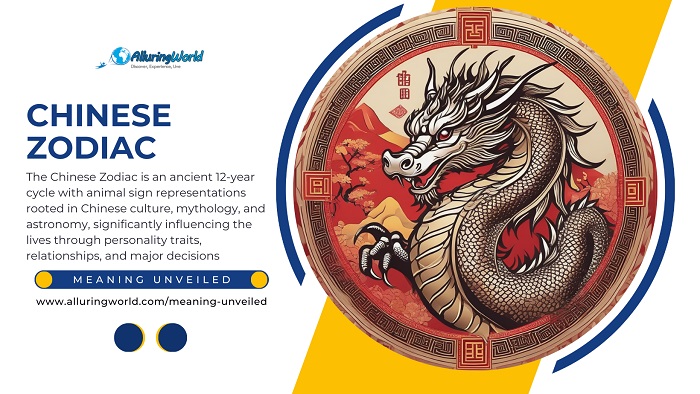Read time ca. 5 minutes
The Chinese zodiac, also known as Shengxiao (生肖), is an ancient system based on a 12-year cycle, with each year represented by a different animal sign. Rooted in traditional Chinese culture, mythology, and astronomy, this zodiac plays a significant role in people’s lives, influencing personality traits, relationships, and even major life decisions, and understanding the origins and meanings of these zodiac signs provides insight into the deep connection between Chinese culture and the natural world.
Origins of the Chinese Zodiac:
The exact origins of the Chinese zodiac are unclear, but historical records trace it back over 2,000 years to the Han Dynasty (206 BC – 220 AD). Some theories suggest that the zodiac was influenced by the 12-year cycle of Jupiter, the largest planet in our solar system, which ancient Chinese astronomers observed moving through the sky, while others believe it was inspired by early Chinese agriculture and the need to track time based on seasonal changes.
One of the most popular legends explaining the zodiac’s origin is the Great Race, in which the Jade Emperor, ruler of heaven, invited animals to a race across a river. The first 12 animals to finish were given a place in the zodiac cycle, each representing a different year, and according to the story, the Rat won by using its intelligence to ride on the Ox’s back before jumping ahead at the last moment. The sequence of the other animals was determined by their arrival in the race.
The 12 Zodiac Animals and Their Meanings:
Each animal in the Chinese zodiac is believed to influence a person’s character and destiny based on the year they were born, so the 12 zodiac animals are:
- Rat (鼠) – Clever, resourceful, and adaptable, the Rat symbolizes intelligence and quick thinking. People born under this sign are often charming and successful.
- Ox (牛) – Hardworking, patient, and reliable, the Ox represents strength and determination. Those born in an Ox year are known for their perseverance.
- Tiger (虎) – Brave, confident, and competitive, the Tiger is a symbol of courage and leadership. Tigers are natural-born leaders with a strong sense of justice.
- Rabbit (兔) – Gentle, elegant, and kind-hearted, the Rabbit is associated with diplomacy and peace. People born under this sign tend to be artistic and compassionate.
- Dragon (龙) – Charismatic, ambitious, and powerful, the Dragon is the only mythical creature in the zodiac and represents strength and good fortune.
- Snake (蛇) – Wise, mysterious, and intuitive, the Snake is often associated with deep thinking and transformation. Snakes are known for their strong intuition and intelligence.
- Horse (马) – Energetic, free-spirited, and adventurous, the Horse symbolizes movement and enthusiasm. Those born in a Horse year love independence and exploration.
- Goat (羊) – Creative, gentle, and kind, the Goat (or Sheep) represents harmony and artistic talent. Goats are known for their empathy and strong sense of beauty.
- Monkey (猴) – Playful, intelligent, and curious, the Monkey is a sign of wit and humor. People born under this sign are often quick learners and problem solvers.
- Rooster (鸡) – Observant, hardworking, and outspoken, the Rooster symbolizes diligence and confidence. Roosters are known for their attention to detail and organization.
- Dog (狗) – Loyal, honest, and just, the Dog represents faithfulness and responsibility. Those born in a Dog year are protective and value strong relationships.
- Pig (猪) – Generous, kind, and determined, the Pig is associated with wealth and good fortune. Pigs are known for their sincerity and ability to enjoy life.
Yin-Yang and the Five Elements:
Beyond just the animal signs, the Chinese zodiac also incorporates the concepts of Yin-Yang (阴阳) and the Five Elements (Wu Xing, 五行)—Wood, Fire, Earth, Metal, and Water. Each zodiac sign is associated with an element and either Yin (passive, receptive energy) or Yang (active, dynamic energy). This combination further refines a person’s personality traits and fortune.
For example, a Water Tiger (born in 1962 or 2022) would have a different personality from a Fire Tiger (born in 1926 or 1986), as the Water element brings adaptability and intelligence, while Fire enhances passion and intensity.
Cultural Importance and Influence:
The Chinese zodiac is far more than a simple horoscope; it permeates the very fabric of daily life, influencing crucial decisions from marriage compatibility and career choices to the timing of major life events like the Lunar New Year. Families meticulously consult zodiac signs to pinpoint auspicious dates for pivotal moments, such as weddings, the signing of significant business deals, and the carefully planned arrival of a newborn, so certain zodiac years, most notably the Year of the Dragon, are considered exceptionally auspicious, resulting in notable surges in birth rates as parents seek to bestow the perceived good fortune of the Dragon upon their children.
In modern times, the zodiac continues to hold a position of deep respect and relevance not only in China but across various East Asian countries, including Japan, Korea, and Vietnam. While the core cycle of twelve animals remains consistent, each country incorporates subtle variations, reflecting unique cultural interpretations and local legends. For example, some regions may substitute or modify certain animals to align with their specific historical and mythological narratives, but the ongoing practice of consulting the zodiac, whether for personal guidance or community-wide celebrations, underscores its enduring significance as a cultural touchstone.
Conclusion:
In conclusion, the Chinese zodiac is a fascinating blend of mythology, astronomy, and philosophy that has shaped Chinese culture for thousands of years. Each of the 12 animals carries deep symbolic meaning, influencing personalities, traditions, and even major life decisions, and whether taken as a lighthearted tradition or a serious guide to destiny, the Chinese zodiac remains an enduring and meaningful part of East Asian heritage.

